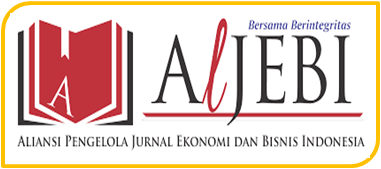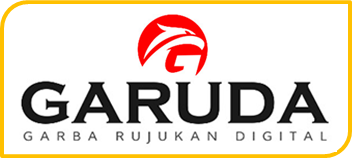- Focus and Scope
- Section Policies
- Peer Review Process
- Open Access Policy
- Publication Ethics
- Plagiarism Policy
Focus and Scope
Maliki Islamic Economics Journal (M-IEC Journal) is a peer-reviewed and open access journal that focuses on Islamic Economics fields. This journal publishes original articles, reviews, and also interesting case reports. Letters and commentaries of our published articles are welcome.
Subjects suitable for publication include, but are not limited, to the following fields of:
- Islamic Accounting
- Islamic Finance
- Islamic Insurance
- Islamic Banking
- Islamic Economics
- Islamic Mutual Funds
- Islamic Business and Management
- Zakah and Waqf
Section Policies
Articles
Peer Review Process
Peer Review Process And Editorial Decision
All submitted articles are read by the editorial staff. Those articles evaluated by editors to be inappropriate to journal criteria are rejected promptly without external review. Articles evaluated to be of potential interest to our readership are sent to double-blind reviewers. Every submitted manuscript will be reviewed by at least two reviewers. The editors then make a decision based on the reviewer’s recommendation from among several possibilities: rejected, require major revision, need minor revision, or accepted. The Editor of M-IEC Journal has the right to decide which manuscripts submitted to the journal should be published.
To be published in this Journal, a paper should meet general criteria:
- The submitted article must be original, unpublished work, and not under consideration for publication elsewhere.
- Provides strong evidence for its conclusions.
- Should be a research result or literature studies in islamic economics field
In general, to be acceptable, the article should represent an advance in understanding likely to influence thinking in the field. There should be a discernible reason why the work deserves the visibility of publication in Maliki Islamic Economics Journal rather than the best of the specialist journals.
Review Process:
1. Author Article Submission
2. Editor Evaluation [some articles are rejected or returned before the review process]
3. Double-blind peer review process
4. Editor Decision
5. Confirmation to the authors
Open Access Policy
This journal provides immediate open access to its content on the principle that making research freely available to the public supports a greater global exchange of knowledge.
Publication Ethics
M-IEC Journal is a peer-reviewed national journal, available in print and online. It is published twice a year. The publication of articles in peer review journals is an important model. It is necessary to agree on the standard of ethical behavior of all parties involved in the act of publishing an article in this journal, including the author, the chief editor, the Editorial Board, the peer-reviewer and the publisher.
This statement clarifies the ethical behaviour of all parties involved in the act of publishing an article in this journal, including the author, the chief editor, the Editorial Board, the peer-reviewers and the publisher (Faculty of Economics, Universitas Islam Negeri Maulana Malik Ibrahim Malang). This statement is based on COPE’s Best Practice Guidelines for Journal Editors.
Publication Decision
The editor is responsible for deciding whether the article will be published or not. The validation of the work in question and its importance for researchers and readers must always encourage that decision. The implementation of Editor's duties refers to the policies of the journal's editorial board and constrained by such legal requirements as shall then be in force regarding libel, copyright infringement and plagiarism. Editors can discuss with other editors or reviewers to make this decision.
Fair play
An editor at any time evaluate manuscripts for their intellectual content without regard to race, gender, sexual orientation, religious belief, ethnic origin, citizenship, or political philosophy of the authors.
Confidentiality
The editor and any editorial staff must not disclose any information about a submitted manuscript to anyone other than the corresponding author, reviewers, potential reviewers, other editorial advisers, and the publisher, as appropriate.
Disclosure and conflicts of interest
Unpublished materials disclosed in a submitted manuscript must not be used in an editor's own research without the express written consent of the author.
Contribution to Editorial Decisions
Peer review assists the editor in making editorial decisions and through the editorial communications with the author may also assist the author in improving the paper.
Promptness
Any selected referee who feels unqualified to review the research reported in a manuscript or knows that its prompt review will be impossible should notify the editor and excuse himself from the review process.
Confidentiality
Any manuscripts received for review must be treated as confidential documents. They must not be shown to or discussed with others except as authorized by the editor.
Standards of Objectivity
Reviews should be conducted objectively. Personal criticism of the author is inappropriate. Referees should express their views clearly with supporting arguments.
Acknowledgement of Sources
Reviewers should identify relevant published work that has not been cited by the authors. Any statement that an observation, derivation, or argument had been previously reported should be accompanied by the relevant citation. A reviewer should also call to the editor's attention any substantial similarity or overlap between the manuscript under consideration and any other published paper of which they have personal knowledge.
Reporting standards
Authors of reports of original research should present an accurate account of the work performed as well as an objective discussion of its significance. Underlying data should be represented accurately in the paper. A paper should contain sufficient detail and references to permit others to replicate the work. Fraudulent or knowingly inaccurate statements constitute unethical behavior and are unacceptable.
Originality and Plagiarism
The authors should ensure that they have written entirely original works, and if the authors have used the work and/or words of others that this has been appropriately cited or quoted.
Multiple, Redundant or Concurrent Publication
An author should not in general publish manuscripts describing essentially the same research in more than one journal or primary publication. Submitting the same manuscript to more than one journal concurrently constitutes unethical publishing behavior and is unacceptable.
Authorship of the Paper
Authorship should be limited to those who have made a significant contribution to the conception, design, execution, or interpretation of the reported study. All those who have made significant contributions should be listed as co-authors. Where there are others who have participated in certain substantive aspects of the research project, they should be acknowledged or listed as contributors. The corresponding author should ensure that all appropriate co-authors and no inappropriate co-authors are included on the paper, and that all co-authors have seen and approved the final version of the paper and have agreed to its submission for publication.
Fundamental errors in published works
When an author discovers a significant error or inaccuracy in his/her own published work, it is the author’s obligation to promptly notify the journal editor or publisher and cooperate with the editor to retract or correct the paper.
Plagiarism Policy
Maliki Islamic Economics Journal will judge any case of plagiarism on its limits. All submitted texts will be screened by plagiarism using Turnitin and Plagiarism Checker. The similarities tolerance is no more than 20%. If plagiarism is detected by the editorial board member, reviewer, editor etc., in any stage of article process- before or after acceptance then we will alert the same to the author(s) and will ask them to rewrite the content or the to cite the references from where the content has been taken.



























